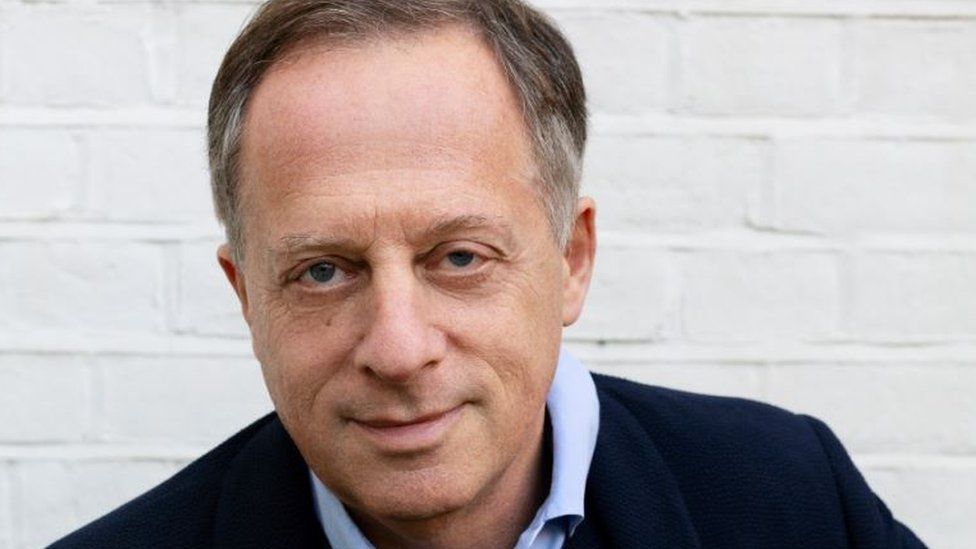Who is Richard Sharp, the BBC's new chairman?
- Published

Richard Sharp is not Charles Moore.
There had been plenty of speculation that Moore - a former editor of The Daily Telegraph who was a renowned critic of the BBC, and especially the licence fee - would get the job.
But for family reasons, he decided against going for the role.
Instead, it has gone to a much more conventional figure - at least in so far as Richard Sharp is closer to the mould of Sir David Clementi, the outgoing chairman. His appointment was first reported by Mark Kleinman of Sky News.
Sharp, who is 64, will earn a reported £180,000, but the final terms may have changed based on his dealings with DCMS.
Sharp's father held senior positions at Monsanto and Cable & Wireless, meaning young Richard spent part of his childhood in America.
He read PPE at Christ Church, Oxford, where he was a neighbour to the journalist Adam Boulton. He went on to work for Morgan Guaranty, and then had a long and very distinguished career at Goldman Sachs.
There, he was a senior figure when a young Mark Carney - the future Bank of England Governor - also worked for the bank.
This connection had some poignancy when Carney, as governor, warned about the potential economic risks of Brexit. Sharp, who supported Brexit but not prominently, disagreed with some of Carney's assessment, seeing more opportunities outside the European Union.
Sharp ended up as chairman of Goldman's Principal Investment in Europe. That is, guiding partners with their investments, rather than on the trading side.
One of Sharp's closest relationships at Goldman was with a young man called Rishi Sunak. Sharp - a major Tory party donor who was on the board of the conservative think tank, the Centre for Policy Studies - described Sunak to a friend as the best young financial analyst he had seen. More recently, Sharp has been working for his old mentee, helping the government with loans to business.
I hear the chancellor was mildly miffed at losing such a close ally at a crucial time, but was persuaded of the merits of Sharp taking up his new role at the BBC.
Sharp's heritage is Jewish and he is considered by those who know him broadly pro-Israel. He has a twin sister, Victoria, who is a senior judge. Victoria was also the name of his first wife. Sharp had another sister who died young from cancer.
Deeply affected by this, Sharp became a supporter of some of Maurice Saatchi's campaigns to improve cancer research, and care for those enduring cancer.
Sharp has a strong pedigree in the arts, as a former chairman of the Royal Academy, and was for many years a member of the Bank of England's Financial Policy Committee.
His views on the BBC itself are unknown. But like new director-general Tim Davie, whom he met a few weeks before Christmas, he has a commercial background. Just as the relationship between Lord Hall, Davie's predecessor, and Sir David was strong, so the bond between the new DG and chairman will be crucial.
Whether Sharp supports the licence fee as the pillar of a future BBC settlement is unclear.
The last time the BBC's future was negotiated with a sceptical Conservative government, the relationship between the director-general and the chancellor - then George Osborne - was critical, as Lord Hall explained to me in his exit interview.
This time, Davie will go into that negotiation with a very close ally of the current chancellor - though Sharp's first duty is to support Davie, and the BBC, and not his old mentee.
Related Topics
- Published6 January 2021